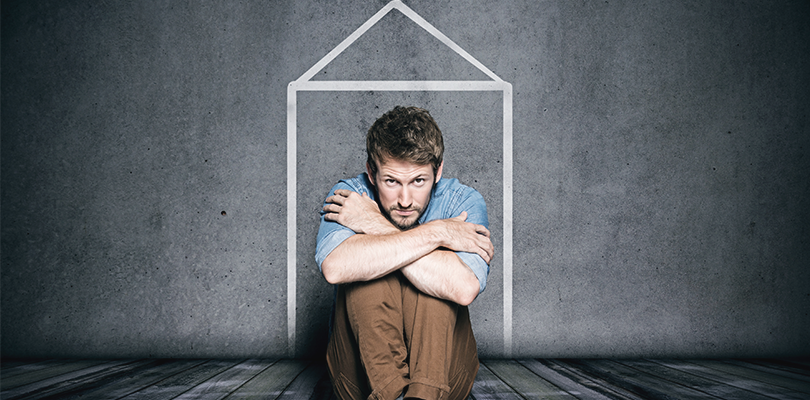How does agoraphobia, the fear of open spaces, develop?
We are all very different from each other. From birth, some people are more sensitive to their own bodily sensations, which they perceive with greater intensity than most people. It is particularly in these individuals that we find the “fear of fear”. A feeling of uneasiness takes hold of them because they are afraid of being in a panic situation. But what is agoraphobia, fear of open spaces? A look at this anxiety disorder which is part of the specific phobias.

The origins of agoraphobia, the fear of open spaces?
Anxiety attacks and fear of public places
Anxiety attacks are usually triggered by stressful events or phobogenic situations. But sometimes they can also occur for no apparent reason. If you are highly emotional and sensitive to anxiety, then you are more likely to experience chronic ongoing stress and generate panic attacks or anxiety attacks. However, this form of inherited genetic vulnerability only partially explains the origin of this phobia and the panic disorders that may accompany it.
This vulnerability can also be explained by negative life events that impact on your thought process. “I did the right thing by going around the shopping centre. That way I was able to avoid the worst and escape a panic attack. Systematically doing this reinforces your beliefs and justifies your avoidance actions. When anxiety-provoking events occur repeatedly, your parasympathetic system (responsible for the body’s regulatory activity such as heart activity, breathing, digestion, etc.) is affected. This has an impact on your daily life. You feel the stress with increasing intensity. You are constantly on the alert and this eventually depletes all your energy.
Fatigue and fear of open spaces
Psychological vulnerability, even if temporary, is also a characteristic that can explain the development of this phobia. You tend to imagine the worst. You see yourself as being unable to influence the positive or negative outcome of events in your life. In order to regain control, you need to build up your confidence and self-esteem. Helping you to work on this can bring about a significant change.
Agoraphobia, the fear of open spaces, can occur for many reasons, especially when we are going through a fragile moment. It can be due to fatigue, depression, temporary difficulties, burn-out or other causes. It is one of the most disabling phobias that can grow insidiously.
Following a bad experience or a stressful event, you avoid taking the train or plane or any public transport. You limit yourself, little by little, to the strict perimeter of your town, your neighbourhood and so on… The perimeter gradually narrows until you can no longer leave your home. This is understandable because going out becomes a condemnation to feeling bad. Typical fears are those of dying, losing control of yourself or going mad. These are things that are not obvious to another person, but it is a real hell to live with.
However, even if you do have a panic attack, you will not go mad. You won’t do anything dangerous and you won’t risk fainting or dying. Although the experience of a panic attack is particularly impressive and unpleasant, many people have had one. But it does not threaten your life, your mental health or your physical health.
Can the fear of the great outdoors be overcome?
Yes, this phobia can be treated! If you feel concerned, or if you think you are concerned by a panic attack or anxiety attacks in public places, do not wait any longer to consult a health professional. It will always be easier for the latter to find quick and effective solutions if the phobia has not been anchored for several years.
Relaxation and desensitisation techniques (through exposure therapies: CBT and VRT) are among the techniques that allow you to overcome phobia and act on mental disorders. By becoming calmer and calmer and learning to relax, you can significantly reduce your stress and anxiety levels. The phobia will still be present but will gradually diminish. Desensitisation can also be done through imagination (e.g. imagining that you are leaving the house while relaxing). Or with the help of a virtual reality headset that allows you to face your phobia in a more real, immersive way.
These techniques allow you to regain control of yourself. You will be able to gradually master the situation(s) that are the source of extreme anxiety before they totally paralyse you in your daily life. This will make it possible for you to return to normal functioning. You can once again engage in activities that you had to give up in part or in full without fear.


